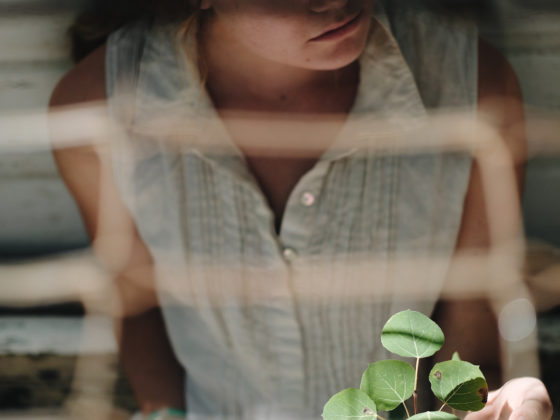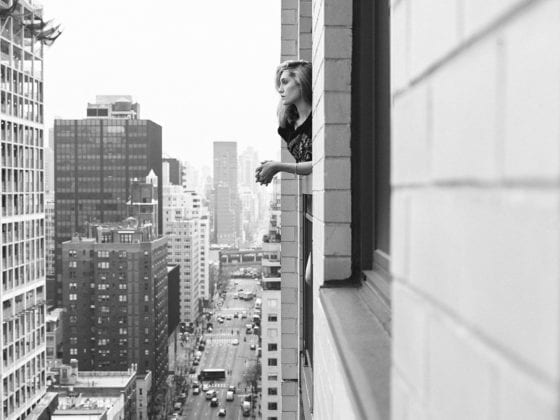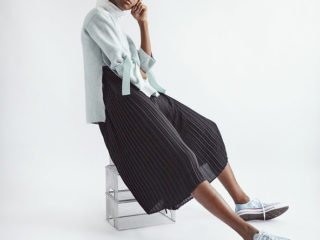I glance down and view the complexion of my skin.
This complexion was not of my choosing but has served me like the chosen one.
I am uncovering the lightness, not only in hue but in weight.
For I have learned, if the trauma that touched our ancestors is never corrected, it can be birthed anew in us.
If the trauma that touched our ancestors is never corrected, it can be birthed anew in us.
I sit pondering the weight of the ancestors of the enslaved, the segregated, the lynched and left out.
Pondering the heaviness that has been delivered to Black families each day like it was the morning newspaper.
Pondering how similarly the blood of the past and present spill from innocent bodies.
This is a burden that I will never carry.
It is a burden that will never be tossed on my dew-drenched grass come dawn.
Because I was born as a white woman.
Then, later in school bound by the sacred land of suburbia, more white people taught me about discrimination with a tone of mere objectivity and remembrance.
Within this sacred land, I was kept safe from the suffering beyond my streets, safe from being turned away or turned in simply due to my covering.
Yet, my ignorance and safety do not cast out all inequality.
In fact, without looking through my locked window to view what is happening outside of my world,
I am actively adding to the oppression, prejudice and partiality.
I am actively adding to the oppression, prejudice and partiality.
I glance down at the complexion of my skin, a complexion that can exist in a world of “all lives matter.”
I glance down at the complexion of my skin, understanding there is no confusion on whether my life matters.
Because my life is not the only one, and each life that is attempting to survive beneath another skin tone whose country does not cater to it exists as a being just as worthy of life.
Because there are still groups of people, systems of government and actions of apathy that do not yet align with this, we must say, “Black lives matter.”
Not with a whisper or a simple supportive quote should we mutter these words, but with a lifelong commitment
To bringing every man and woman of every skin tone to an equilibrium of existence.
We were not made for any less because in the words of Nina Simone, “I’ll tell you what freedom is to me. No fear.”
In the words of Nina Simone, “I’ll tell you what freedom is to me. No fear.”
Only when we fight to arrive at a place of total equality, where Black men and women can exist with the same absence of fear as white men and women, will we have freedom,
Where Black men and women have no burdens to pick up on their lawn each new day.
Only when we are willing to uncover our own socially sewn-in prejudices and allow ourselves to
Endlessly and shamelessly shout, “Black Lives Matter,” will we be capable of honestly stating
This is a land of “liberty and justice for all.”
What role are you choosing to play in the discussion on racial equality? How are you holding yourself and others accountable?
Image via Brooklyn Hawaii and Kanoa Zimmerman, Darling Issue No. 16











2 comments
I understand the point, but it sad to me that there now seems to be a shaming of white people which comes across in this article. No one should feel guilt or shame for the color of their skin whether you ore white or black. Be part of the solution but do not feel shame for your light skin complexion. That does no one any good. Also, black lives matter but you don’t have to support the organization Marxist organization Black Lives Matter.
Hi Jackie, first off I wanted to thank you for engaging in this conversation. It remains a difficult and awkward one and takes courage to merely take a seat at the table and join the conversation, so thank you for doing so.
I am aware it is incredibly rare that a section of words floating around this world, regardless of their content, will ever be read identically because we all come from different stories, homes, walks of life, etc.
And so I understand and hear your words. I do believe many white people do feel shamed right now and simultaneously believe, the act of shaming white people may be sewn into the grander act of holding white people accountable.
To be clear, I am not for shame. I do not believe it solves any problems. I am for accountability. My point in writing this was not to shame myself or any others with a similar tint of skin into believing they are corrupt or immoral people. My point in writing this was to hold white people accountable in doing the work they can personally do to bring Black people to an equilibrium of existence, whether that be in social situations, careers, or our governmental system.
There is a quote from the book, White Fragility “that beautifully captures what I am trying to communicate. It reads, “Not naming the groups that face barriers only serves those who already have access; the assumption is that the access enjoyed by the controlling group is universal.”
The absence of shame is also linked to the way many white people are raised. This may be at home. This may be at school. This may be by the media consumed in adolescence. I mention in this article that I was taught about discrimination and racism with a tone of objectivity and remembrance. These lessons happened to be taught by all-white teachers in an overwhelmingly white school and suburb. Without self-educating and listening to stories of daily suffering from Black men and women, we have no choice but to exist in a society and country that caters to our skin tone without ever questioning it or noticing that not everyone is benefitting from a system created with white people in mind they way in which we are.
In short, I think accountability is a beautiful instrument for change and equality. I think shame is just it’s opposite. I believe shame can be a temporary, gut-wrenching, and natural reaction to being held accountable, especially during these times, but I do not believe shame to be a victory for anyone.
Shaming to me says, “You are horrible, how dare you?” Accountability to me says, “You are good and I know you hold the potential to do better, will you open yourself up to growth in this area?”
I will end sharing a quote I try to live by introduced to me by the beautiful writer, Maya Angelou, “Do the best you can until you know better. Then when you know better, do better.”
There is also a wonderful podcast on the distinction of these very subjects just recorded by Brené Brown on her podcast, “Unlocking Us.” It is titled “Brene on Shame and Accountability,” if you ever would like to further listen to the other side of this conversation.
Again, thank you so much for taking a seat at the table of this uncomfortable conversation.
Written with love,
-Brooke Putney